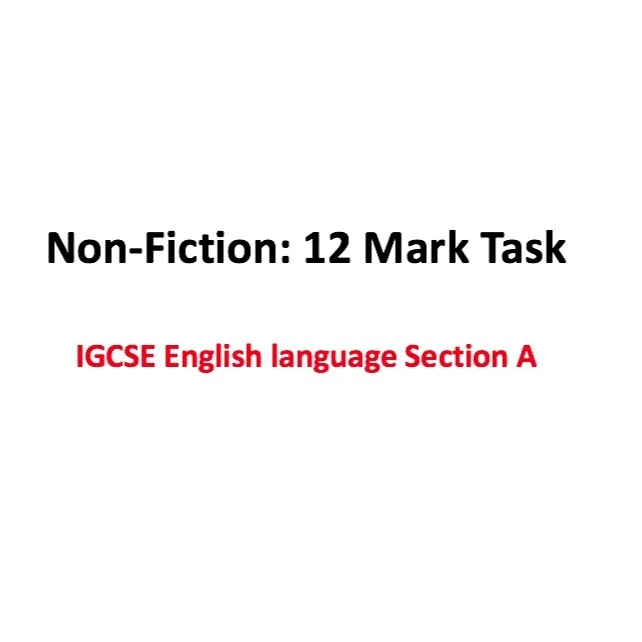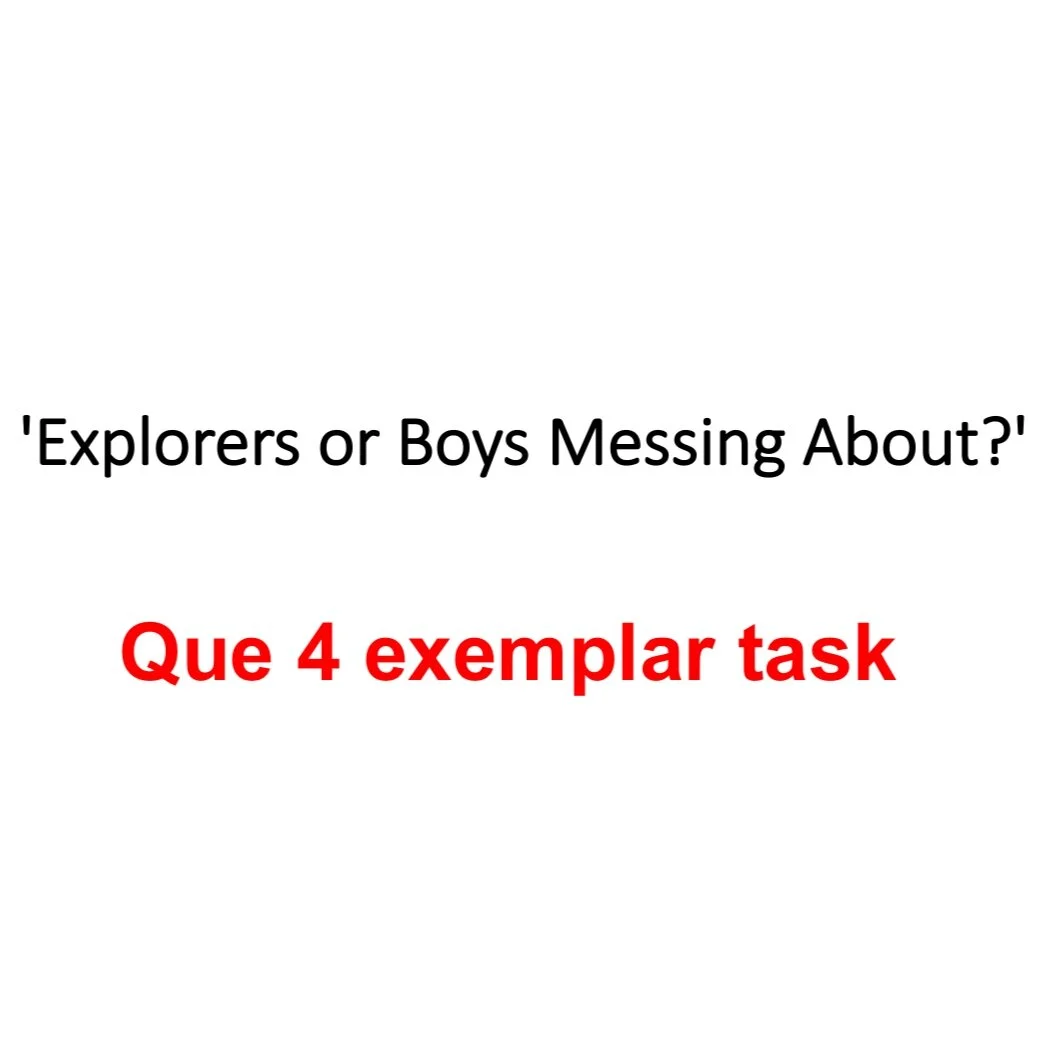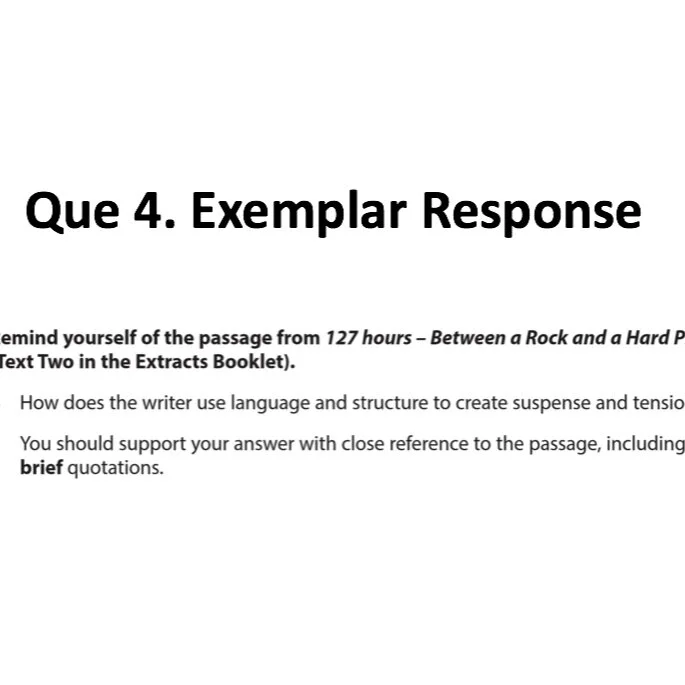The first three questions in the IGCSE English Language exam paper require you to respond to an unseen piece of non-fiction writing. There are 11 marks available, which are divided into three questions. With a little exam technique and good time management, these tasks provide you with an opportunity to get some good marks in the bag before you go on to tackle the more demanding, high-tariff tasks to follow.
Read Morea brief video presentation which will give you an overview of Section A of the IGCSE Language exam. At the end, you’ll know the format of the exam, the skills tested and some questions you can use to investigate any non-fiction source you might be given.
Read MoreA narrated video that will take you through the requirements of the 12 mark task, based on one of the Non-Fiction Anthology extracts you will have studied for the IGCSE English Language examination.
Read MoreSome useful ideas on Adiche’s TED talk with a focus on language, form and structural techniques employed.
Read MoreIn this recording, we’ll be looking closely at this piece of ‘meta-cognitive’ journalism. Make sure you take detailed notes on your copies of the article and then go on to create two lists of features - linguistic and form/structural devices employed by the author.
Read MoreA 20-minute audio recording which will guide you in your note-taking for the non-fiction extract ‘The Explorer’s Daughter’. Please take detailed notes and listen carefully!
Read MoreHere is a 30-minute audio recording, offering a whistle-stop tour through the key takeaways for the Guardian Newspaper article, written by Stephen Morris. Listen carefully and take detailed notes, please.
Read MoreA narrated presentation of my exemplar response, following the M5 Assessment Point on the Non-Fiction anthology extract by Morris - ‘Explorers or Boys Messing About’.
Read MoreIn this audio recording, we are going to take a look at the non-fiction extract which describes Aaron Ralston’s desperate effort to free himself, after becoming trapped by a rockfall while climbing a canyon in Utah back in 2003.
Read MoreA narrated PPT which will take you through the planning and production of a top tier Question 4 response for Section A of the IGCSE English Language paper (based on one of the extracts from the Non-Fiction Anthology).
Read MoreA set of audio notes to help prepare for the non-fiction Language paper. As usual, our focus here is the language, form and structural features of this extract and their intended effect on the reader.
Read MoreA set of audio notes, supporting the study of Levine’s travelogue - ‘A Game of Polo and a Headless Goat’ - part of the Non-Fiction anthology for IGCSE English Language.
Read MoreIn this recording, we will be taking a look at Jamie Zeppa’s travelogue, outlining her initial impressions of the landscape and people of Bhutan - another of the non-fiction extracts which may appear in your IGCSE Language exam.
Read MoreA 31-minute audio guide, analysing Helen Macdonald’s extract from the Non-Fiction anthology. Take careful notes and I hope it is useful :)
Read More‘If you fail to plan, you’re planning to fail’! It’s one of my favourite truisms but how should you go about planning a 12 mark response, given how little time you have under timed conditions? Does it really make much of a difference? Let’s find out!
Read MoreA brief narrated PPT which provides feedback on the recent 12 mark timed response task based on ‘H is for Hawk’ - one of the extracts from the IGCSE Language Non-Fiction anthology.
Read MoreSome hopefully helpful commentary on the last of the non-fiction extracts from the anthology.
Read MoreA PPT offering a step by step guide to tackling the 5 questions which compose the Non-Fiction writing tasks for the IGCSE Language exam paper.
Read More

















